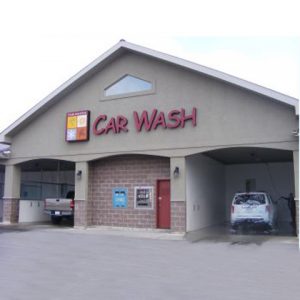 Home Washing Is Harmful To the Environment
Home Washing Is Harmful To the Environment
Few people realize that washing our cars in our driveways is one of the most environmentally un-friendly chores we can do around the house. Just consider all the corrosive and toxic substances that get deposited on well-traveled streets, roads and highways …including asphalt, engine and brake residue, antifreeze, grease, oil, rust and asbestos, to name only a few. All these contaminants collect on tires, wheels, fenders and other vehicle surfaces, after which runoff from home car washing can eventually release them directly into stormwater drains designed for rainwater. Even if bio-friendly soap (or no soap at all) is used, hosing off a car’s body and wheels dislodges pollutants that can end up in rivers, lakes, and streams, creeks and wetlands where it poisons aquatic life and wreaks other ecosystem havoc.
Commercial Car Washes Treat Waste Water and Conserve Water Usage
All waste water in a commercial car wash is sent directly to the city’s sanitary sewer system for processing prior to being released into the environment. In addition, commercial car washes use computer controlled systems and high-pressure nozzles and pumps that minimize water usage. The International Carwash Association, an industry group representing commercial car wash companies, reports that car washes use less than half the water of even the most careful home car washer. According to one report, washing a car at home typically uses between 80 and 140 gallons of water, while a commercial car wash can vary from 15 to 45 gallons per car.
